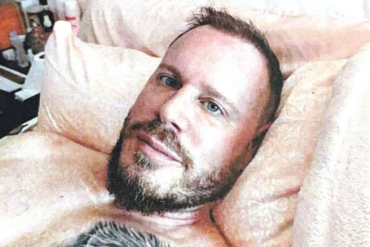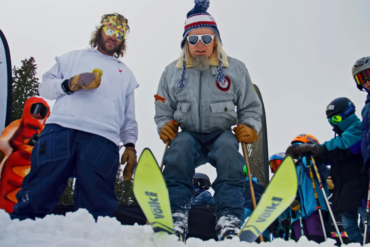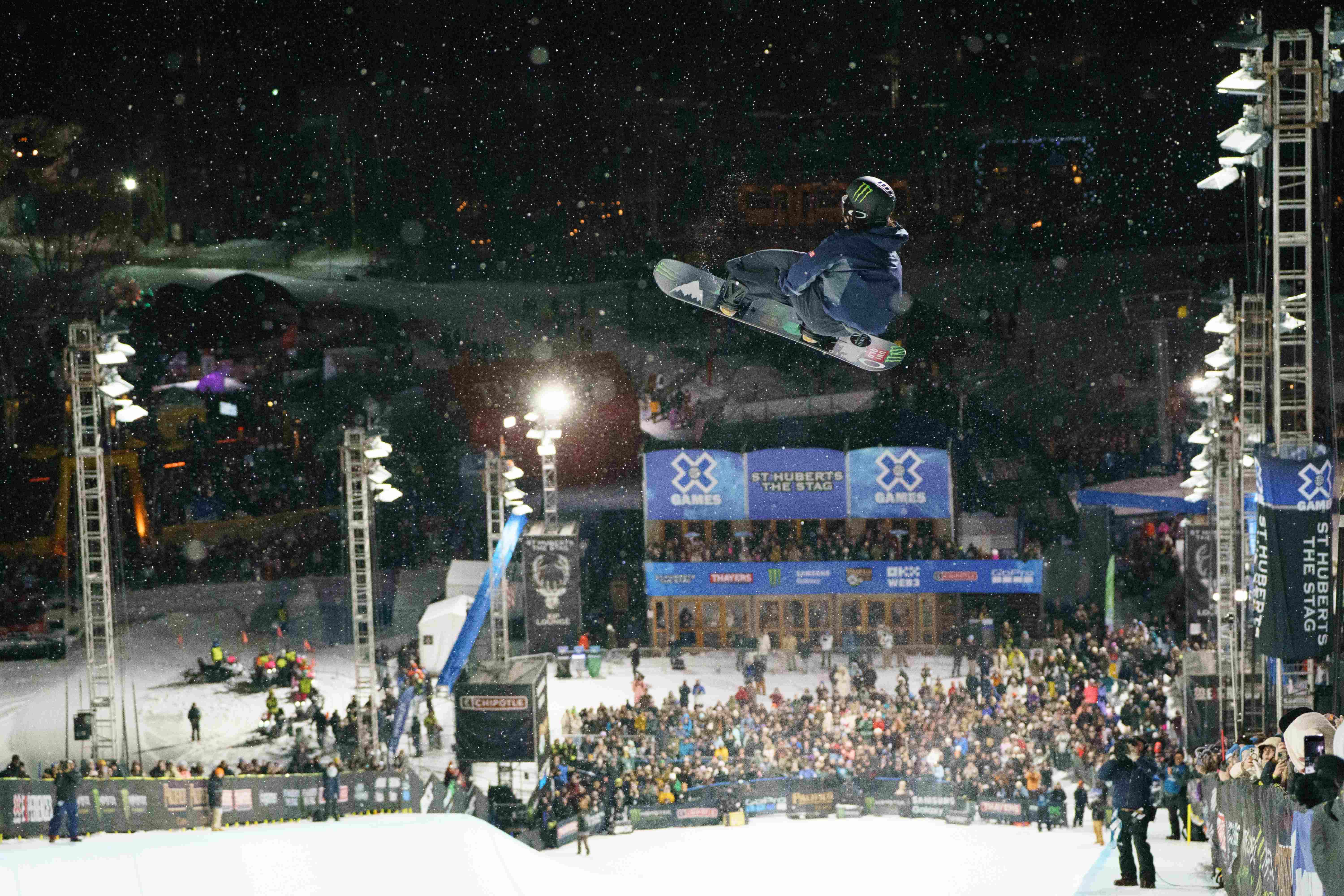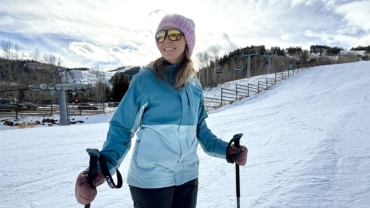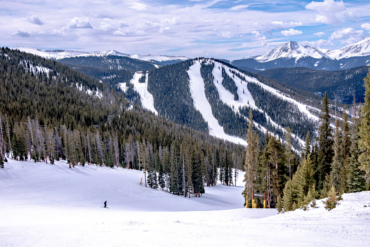Pro snowboarder Jeremey Jones talks about his new environmental documentary ‘Ode to Muir.’
The chill of winter has given Jeremy Jones everything in life. From growing up playing bog hockey on Cape Cod to carving out a career as a professional snowboarder, filmmaker, and snowboard manufacturer, Jones has embraced cold weather for as long as he can remember.
But spending so many days in deep in the mountains, he also knows the impacts of climate change. The co-founder of Teton Gravity Research (TGR) and resident of Truckee, Calif., founded Protect Our Winters (POW) in 2007. The nonprofit organization brings attention to the effects of the global warming crisis Jones witnesses firsthand.
‘Ode to Muir’ Adventure Documentary
 Jones’ latest film, “Ode to Muir,” isn’t a thrill-a-minute fantasy flick in the “snow porn” genre like so many other TGR movies. Instead, it’s an adventure-based documentary that touts the impacts of climate change. In the film, he and two-time Olympic snowboarder Elena Hight spend eight days traversing, camping, and snowboarding in the John Muir Wilderness Area in California. They discuss the effects of global warming, subtly quoting 19th-century American naturalist and environmental philosopher John Muir. The film decries modern politicians who deny the existence of climate change.
Jones’ latest film, “Ode to Muir,” isn’t a thrill-a-minute fantasy flick in the “snow porn” genre like so many other TGR movies. Instead, it’s an adventure-based documentary that touts the impacts of climate change. In the film, he and two-time Olympic snowboarder Elena Hight spend eight days traversing, camping, and snowboarding in the John Muir Wilderness Area in California. They discuss the effects of global warming, subtly quoting 19th-century American naturalist and environmental philosopher John Muir. The film decries modern politicians who deny the existence of climate change.
Through educational, activist, and community-based projects, Jones walks the walk. Every year, he leads a POW contingent to meet with members of Congress in Washington, D.C. He’s gone so far as to forego the use of helicopters and chairlifts in his snowboarding and filmmaking. He opts instead to hike or use mountain bikes as his only means of transportation on the slopes.
In recent years, he’s been able to recruit other outdoor athletes to help push the cause. Those include skier Julian Carr, snowboarder Kelly Clar,k and trail runners Clare Gallagher, Joe Grant, and Anton Krupicka.
Protect Our Winters and Voting
With a focus on the midterm elections, POW is backing candidates who are eager to address climate change, increase renewable energy options, and talk about why protecting the natural world matters. Ultimately, Jones says, if humanity doesn’t address global warming immediately, it will lead to the demise of the skiing and snowboarding across North America. Obviously, the tourism industry and economic fortune tied to winter sports would also wither.
“I first started seeing significant changes to the mountains because of a lack of snow probably 15 years ago,” Jones said before the recent world premiere of the film in Boulder, Colo.
“Doing what I do in the mountains requires deep, intimate connection with snow, moisture, and texture, and the changes have been obvious. At first, it was more in the northern latitudes and the glaciers in Europe, where it’s been documented so well and you can really see the rate of retreat. But the past eight years or so, it’s been terrifying to witness the changes I have seen everywhere.”
“Ode to Muir” will show more than two dozen times across the U.S. over the next six weeks.
Protect Our Winters: Interview With Jeremy Jones
GearJunkie: Why should skiers and snowboarders care about climate change?
Jeremy Jones: I think the mountains have created more environmentalists than anyone else. That’s where people fall in love with nature, and they want to protect it. That’s something I call Eco 101. We’re a little bit of the canary in the coal mine. We’re out there every day so we can see the effect of it firsthand.
It’s heartbreaking to see because so many aspects of what we do is being taken from us. Winters used to be more consistent with a lot less midwinter rain than we’re experiencing now. The difference between a bad winter and a good winter used to be 350 inches or 550 inches. Now we’re not even close to those totals and are even having non-winters some years.
What was your impetus to start Protect Our Winters?
I started POW in 2007 after being in northern Canada and walking through a closed ski resort in February. I was with a bunch of guys who were about 30 years old, and they we were telling me they grew up skiing there. But the resort was closed because they just don’t get enough snow anymore. I thought, “Wow, that’s pretty harsh.” It was really a tipping point for me, but at the same time, I was thinking that I was grateful that I didn’t have to deal with that in my town.
And now, fast forward the past six years or so, our best terrain in Squaw Valley is at the bottom of the mountain. The terrain off the KT-22 chairlift on top of the mountain is why everyone moves there, and, in recent years, we’ve been struggling to get it open. The new norm is, “Hey, KT-22 is open! It’s a good year!” But that was never the barometer we used to go by.
Why has climate change become such a thorny political issue?
When I started POW, I never thought climate change would be a political issue. But for us to have a large-scale CO2 reduction, it will take a combination of both the public and private sector coming together to address the problem and to embrace the opportunities.
The real challenge with climate change is that the time is now. That’s why we are hyperfocused on the midterm elections. I know it’s the most important election of my lifetime. We are getting crushed by the fact that most of our current Congress and our president are climate deniers and doing everything they can to derail progress on the shift to renewable energy. It’s killing us, it’s killing the country, and it’s killing the world.
You recently visited Capitol Hill again with POW to talk about climate change to Congress. How did that go?
When I say it’s all hands on deck, it means we need everyone to help reverse some of the things that are happening. We’ve gone to Capitol Hill for years, and, behind closed doors, we’ve heard Republican staffers tell us they want to be a part of this but they can’t because they won’t make it out of their primary because the Koch brothers will go against them and they’ll lose.
It’s just a tricky situation. If one politician loses an election because of their stance on climate, the ripple effects of that could be big. No one has ever lost an election based on their stance on climate, and we’re fighting to make that happen in this election.
How is “Ode To Muir” different than the other snowboard films you’ve made?
I’ve been wanting to do a snowboard movie with more meaning for a while. With what’s going on in the world today, I could not create another “check out how rad we are” movie without making the one we made with “Ode to Muir.”
I was nervous about releasing this film because it’s a documentary that addresses some serious issues, and yet it still has great snowboarding in it. It’s a true depiction of where my mind is about all of this, and probably the most important film I’ve ever made. The viewer comes on a mission through the mountains with me. It’s a very raw film. I know it’s going to upset some people, and normally I don’t make films knowing it will upset people, but we’re trying hard to get people to wake up.
So what does this mean for the future of snowboarding?
I’m crafty, I don’t mind bushwhacking, and I know how to place to make my turns on snow. But the longer I do it, the lower my expectations are. It’s an adapt-or-die kind of situation, and I embrace what the challenges are, and I’m at peace with it. Where I think it’s at is with the kids and the next generation. My kids are getting used to having fun on a 12-inch base of snow because, unfortunately, that’s becoming the new norm.
There are a lot of dire predictions in the film about how some of these changes will be pretty drastic by 2050. Consider that a kid born today will be 32 by then. Now that I’ve learned the science and understand the severity of the issue, the least of my worries is whether I get to make a powder turn or not. The trickle-down effects to all of humanity not having snow are devastating and terrifying.


